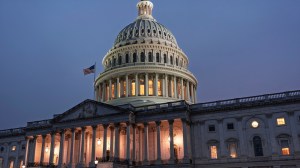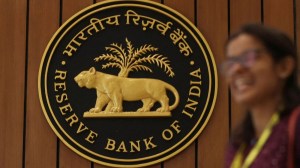Delhi to unveil chem arms stockpile today
NEW DELHI, June 25: One of the country's best kept secrets is to be uncovered tomorrow at The Hague when India discloses its stockpile of w...

NEW DELHI, June 25: One of the country’s best kept secrets is to be uncovered tomorrow at The Hague when India discloses its stockpile of weapons-grade chemical substances to the Chemical Weapons Convention (CWC). As Chairman of the Executive Council of the CWC, India has decided to unveil its stockpile before the June 26 deadline.
The Government of India, after consulting the leaders of all major political parties, including the Opposition, decided to undertake this extraordinary step following their approval. The Parliament’s Consultative Committee on External Affairs was also briefed about this issue during its meeting this evening.
With this declaration, India’s stockpile will be recorded with the Executive Council and will be open to the purview of the member states, but only if the Council deems the request worthwhile. As Chairman of the Executive Council, all such requests for scrutiny will be, to a certain extent, under India’s influence, said informed observers.
On September 3, 1996, India had submitted its Instrument of Ratification to the Chemical Weapons Convention, and with the requisite number of members (65) having ratified it, the Convention came into force on April 29, 1997. Subsequently, the deadline for disclosing stockpiles was fixed at June 26.
The signatories have an opt-out option available, but only after a ninety-day notice period. And all members now have ten years to destroy their stockpiles in a phased manner.
In the first two years, the signatory state needs to come up with just a broad plan to destroy the stockpiles. In the third year, the destruction begins but only one per cent of the holdings needs to be eradicated.
This subsequently goes up to 45 per cent by the seventh year, and ends with complete eradication by the tenth year 2007 AD. This, say analysts, gives the country ample time and opportunity to exercise its options, should unforeseen circumstances arise.
This unprovoked declaration by India is being read with great significance by defence analysts. Terming it as a signal of great confidence in its unconventional weapons capability, an observer said, “It’s a good thing we are complying with the requirements of the convention.While we are the only ones being straight about the stocks around here, at least some will discern in this a statement that we have a certain nuclear capability to back this assertion.” As regards the sincerity of the CWC, an official declared that “India is entering into this treaty because it is the only one which is universalist, global and equitable.
There is no `caste system’ here, for all members will have to undertake the same destruction programme. And therefore, everybody’s programme is being considered on an equal footing.” The real success — if it can be called that — of India’s chemical weapons programme has been a complete absence of any leakage about it. Unlike some other covert programmes that have come to be disclosed by domestic or foreign agencies, India’s chemical weapons programme has never been exposed.
“It would have been a real intelligence coup if an external agency had leaked out data about this programme,” said a security official. While the types and quantities of weapons-grade substances held by India are still not known, and will not be unless some member state leaks the facts, officials confirm they are substantial.
The true significance of this programme, however, lies in the fact that it was always directed by, and under the control of, the political leadership. Armed forces, while conducting some courses on chemical war fighting, have never played much of a role in this programme.
“This enables India to declare its stockpile without inviting any power play had the programme been only a military one,” said an observer.



- 01
- 02
- 03
- 04
- 05




























